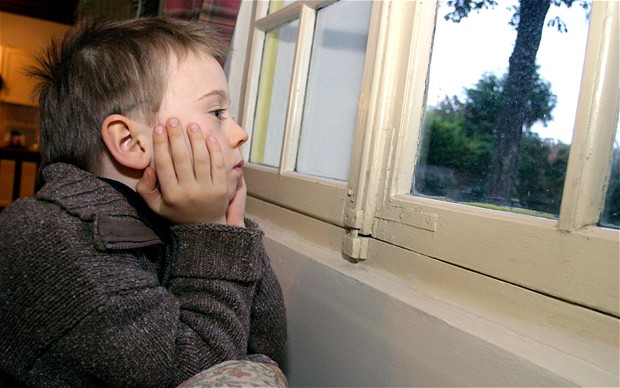
Only the parents of a kid can appropriately judge whether or not they have a high enough maturity and comfort level needed to stay safely home alone.
Today, it’s more common then ever for both parents of a kid to work or for the kid to live with just one parent. This has lead to an increase in the number of children who are spending time at home alone.
Determining if your child is ready to stay home alone can and should be a difficult decision for parents to make. There is no one, exact age that allows parents to accurately determine if a kid is old enough to stay home alone. Luckily there are some guidelines and factors that parents can consider to help them decide if they can leave their kid home alone.
When deciding if a kid can take care of themselves at home alone, consider the following:
- Age of the child. Most specialists believe a kid should be 12 years old or older before he or she should be allowed to stay home alone.
- Your home's surrounding environment. Do you have neighbors you can trust and ask to keep an eye out while the kid is home alone? Is the overall environment surrounding your home a safe one?
- Your kid's ability to properly handle urgent and emergency situations. Does the kid know how to call or get help if needed?
- The maturity level of the kid. Does the kid show that they are able to make good decisions and problem solve if a situation calls for it?
- Duration. How long will the kid be home alone for? A couple hours maybe okay for most kids, but a whole day and night is a different story.
- The kid's overall comfort level with staying home alone. If the kid is nervous and uncertain about being left home alone, most likely they are not ready. Make sure the kid is confident and comfortable with being home alone.
If parents have determined that their kid is ready to stay home alone, they should follow and adopt the following safety measures and precautions to ensure the kid is safe and secure while at home alone.
- Post an emergency phone list where the kid can easily see and access it. Make sure this emergency contact list includes 911, neighbors' names and numbers, parents' work and cell phone numbers, other family members' names and numbers, and any other emergency contacts you can think of that could help the kid in an emergency situation.
- Do a few practice runs with the kid before actually leaving them at home alone. During the practice run, show and tell them what to expect and what to do in different emergency situations. Also, write down clear and simple directions of what to do in case of an emergency and leave it with the kid.
- Make sure that there are at least a couple working flashlights with fresh batteries in the house, and that the kid knows where they are and can easily access them if needed.
- Be certain there is a full first aid kit in the house where the kid can access it. Show and tell the kid where it is before leaving them home alone.
- Install safety covers over all unused electrical outlets in the house.
- Store all medications in a safe place that your kid cannot access to prevent prescription drug errors and any other type of drug injury.
- Depending on how long the kid will be home alone for, either limit or prohibit any cooking privileges.
- Make sure there are working smoke and carbon monoxide alarms in the home.
- Be certain that all potentially hazardous and or dangerous products, items, and materials that could cause injury or worse, like power tools, razor blades, scissors, detergents, pesticides, etc… are safely stored in locked areas that the kid cannot access.
- Remind the kid not to tell anyone who calls the house that they are home alone.



























